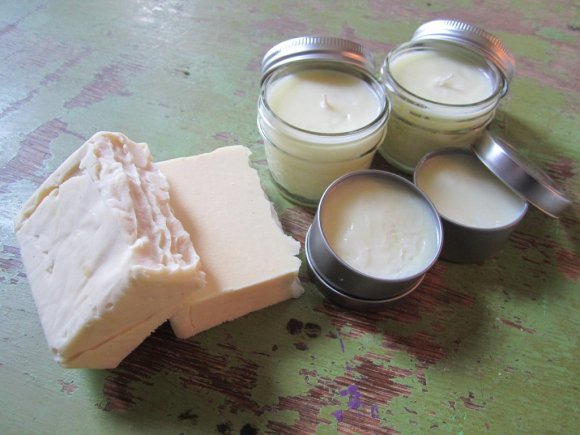Jagg Xaxx has been writing since 1983. His primary areas of writing include surrealism, Buddhist iconography and environmental issues. Xaxx worked as a cabinetmaker for 12 years, as well as building and renovating several houses. Xaxx holds a Doctor of Philosophy in art history from the University of Manchester in the U.K.
Unveiling a Game Changing Soap Production Process
Sep 20, 2023
 (Yuganov Konstantin / Shutterstock.com)
(Yuganov Konstantin / Shutterstock.com)
There is exciting news out of Virginia Tech. Researchers have discovered a novel method for turning the most commonly used plastics into soap. Though the science behind the method is complicated, the process is not. All it requires is some heat.
From smoke to soapMore than 60 million plastic water bottles are thrown into landfills or incinerated every day, making plastic one of the biggest issues in fighting climate change, according to Scripps News.
But now, Dr Guoliang “Greg” Liu, an associate professor of chemistry at Virginia Tech, and his team have come up with a novel way to turn used plastics into something useful. The study was published in the August, 2023 issue of Science
According to a Virginia Tech news release, Liu and his team had been considering the similarities between the chemical make-up of polyethylene, one of the most commonly used plastics in the world, and fatty acids, the chemical precursor to soap. Both of these materials are made of long strings of carbon, though fatty acids have a few more atoms at the end of its chain. This means that it would theoretically be somewhat easy to turn one material into the other. However, Dr. Liu and his team could not figure out how.
The answer arrived one evening while Dr. Liu was enjoying some time outside around a campfire. He was thinking about the ways in which firewood breaks down as it is burned, from wood, to smoke, to carbon dioxide. He wondered what would happen to plastic if it were burned in a laboratory. Would it break down like firewood does? What would its smoke be made of, chemically speaking?
“If we similarly break down the synthetic polyethylene molecules but stop the process before they break all the way down to small gaseous molecules, then we should obtain short-chain, polyethylene-like molecules,” Liu said in the press release.
Liu and his team created an oven which is heated high enough at the bottom to start breaking plastics down into particles, but is cool at the top, stopping the breakdown of the plastic before it turns into a gas. What they were left with was soot-like material made of short-chain polyethylene, that is to say, a wax, that is to say, one of the base materials for making soap. The process can be used on everything from milk bottles to plastic bags to make a liquid soap.
Economically ViableOne of the main advantages of the Virginia Tech method, according to earth.com, is that it is relatively simple. All that is needed is some heat.
This means that it is economically viable and has a minimal environmental footprint. And when it comes down to it, soap is worth more than plastic. In some ways it is as if Liu and his team have done an act of alchemy: turning garbage into gold.
This method could potentially be used to make other products. But for now, this new eco-friendly soap could be a real game changer on how to rid the world of plastic waste and turn it into something useful at the same time.
YOU MIGHT ALSO LIKE:Discover an Edible Food Packaging Breakthrough!New Cooling Film was Inspired by ButterfliesThe EU Wants to Make All Plastic Recyclable by 2030
 TIKI KRAKOWSKI, CONTRIBUTOR
TIKI KRAKOWSKI, CONTRIBUTOR
Tiki is a freelance writer, editor, and translator with a passion for writing stories. She believes in taking small actions to positively impact the world. She spends her free time reading, baking, creating art, and walking her rescue dog.
Soap, Candles, And Toiletries From Deer Fat

Here’s a hack with more of a survivalist flair to it. [Ligament] and some friends used the fat from butchering a deer to make soap, candles, and toiletries.
It’s hunting season and [Ligament’s] dad is processing the deer which he harvested. Wild game doesn’t have the amount of fat you’d find on a domesticated animal, but there is still a fair amount. The group cut off as much as they could before cutting up the rest of the meat. The trimmings are put in a pot with water and boiled until the fat starts to rise. It is ladled off and strained through some cheese cloth. The fat hardens overnight and can be picked up out of the container as a big disk. It is reheated and strained through a mesh coffee filter to achieve the final product. From there the fat was used as an ingredient in the recipes for candles, soap, and things like lip balm. For details on that heck out the comments for each image in the gallery linked above.
It’s a good thing to waste as little as possible. But this skill will be indispensable once the Zombie Apocalypse comes. You might also want to know how to chlorinate your own water.